AMD Zen 3 Ryzen Deep Dive Review: 5950X, 5900X, 5800X and 5600X Tested
by Dr. Ian Cutress on November 5, 2020 9:01 AM ESTCPU Tests: Synthetic
Most of the people in our industry have a love/hate relationship when it comes to synthetic tests. On the one hand, they’re often good for quick summaries of performance and are easy to use, but most of the time the tests aren’t related to any real software. Synthetic tests are often very good at burrowing down to a specific set of instructions and maximizing the performance out of those. Due to requests from a number of our readers, we have the following synthetic tests.
Linux OpenSSL Speed: SHA256
One of our readers reached out in early 2020 and stated that he was interested in looking at OpenSSL hashing rates in Linux. Luckily OpenSSL in Linux has a function called ‘speed’ that allows the user to determine how fast the system is for any given hashing algorithm, as well as signing and verifying messages.
OpenSSL offers a lot of algorithms to choose from, and based on a quick Twitter poll, we narrowed it down to the following:
- rsa2048 sign and rsa2048 verify
- sha256 at 8K block size
- md5 at 8K block size
For each of these tests, we run them in single thread and multithreaded mode. All the graphs are in our benchmark database, Bench, and we use the sha256 and md5 results in published reviews.
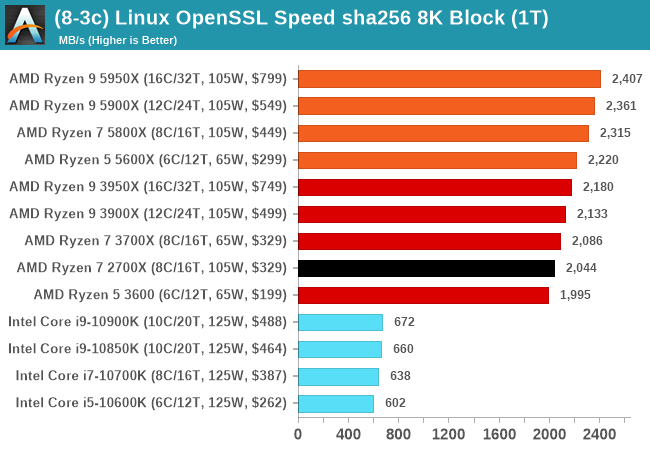
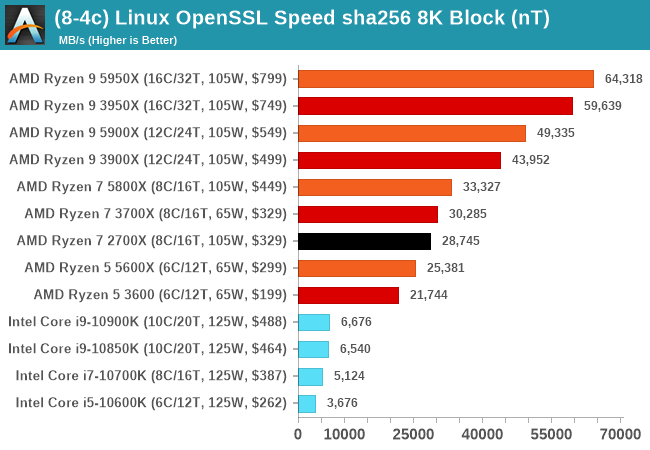
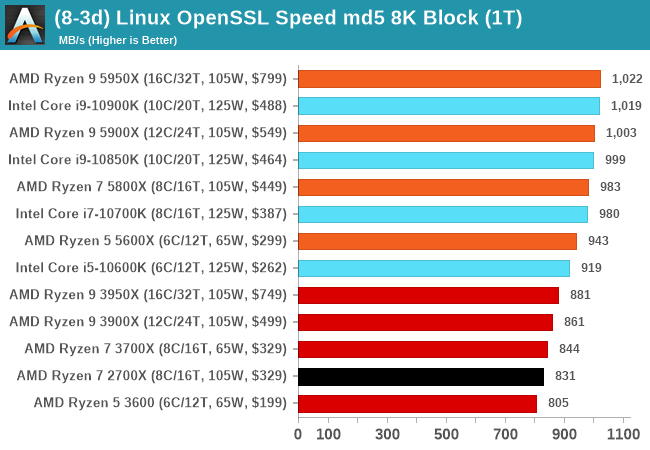
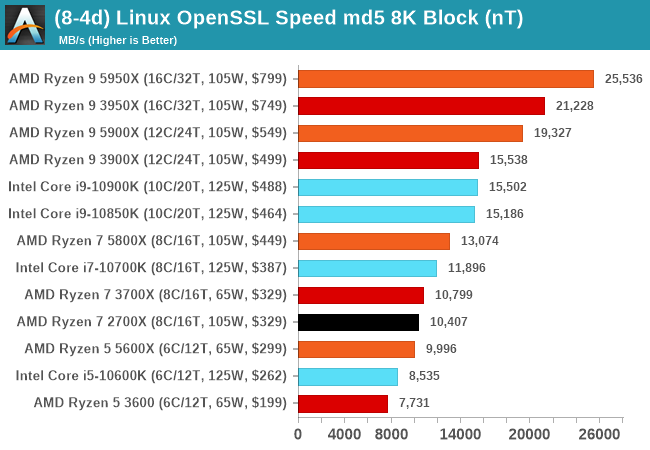
GeekBench 5: Link
As a common tool for cross-platform testing between mobile, PC, and Mac, GeekBench is an ultimate exercise in synthetic testing across a range of algorithms looking for peak throughput. Tests include encryption, compression, fast Fourier transform, memory operations, n-body physics, matrix operations, histogram manipulation, and HTML parsing.
I’m including this test due to popular demand, although the results do come across as overly synthetic, and a lot of users often put a lot of weight behind the test due to the fact that it is compiled across different platforms (although with different compilers).
We have both GB5 and GB4 results in our benchmark database. GB5 was introduced to our test suite after already having tested ~25 CPUs, and so the results are a little sporadic by comparison. These spots will be filled in when we retest any of the CPUs.
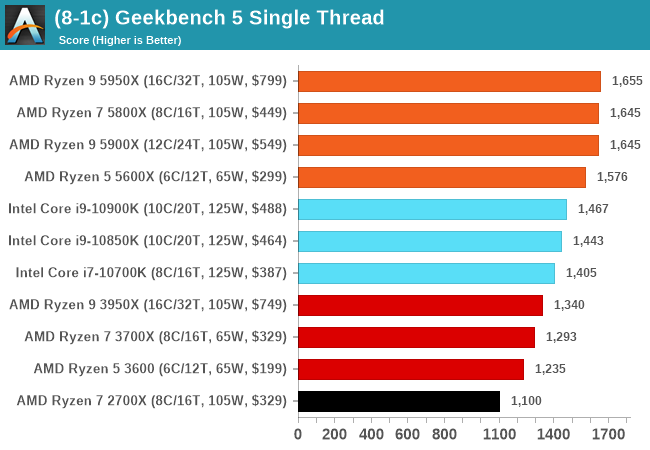











339 Comments
View All Comments
Spunjji - Sunday, November 8, 2020 - link
"It's so much faster, but here are some cherry picked reasons to be salty anyway"Okay then
Qasar - Sunday, November 8, 2020 - link
" Also bit dissapointment, that then can not reach faster clocks for third trial" so you still believe that clock speed is king ? that thats the only way to get performance ? intel is the one that NEEDS the faster clocks, not amd." And these prices, pretty sad. " how so ? seems reasonable to me, specially what intel kept charging for their cpu's before Zen.
ahenriquedsj - Thursday, November 5, 2020 - link
What happened at CS GO? LOL!rogerdpack - Thursday, November 5, 2020 - link
" in almost area "Thanny - Thursday, November 5, 2020 - link
"As we scale up this improvement to the 64 cores of the current generation EPYC Rome, any compute-limited workload on Rome should be freed in Naples."That would be a neat trick, since Naples is Zen 1. Pretty sure you meant Milan here.
tidywickham - Thursday, November 5, 2020 - link
Researching gaming hardware for the first time. Thanks for this. Very helpful.mark625 - Thursday, November 5, 2020 - link
Dr. Cutress, this last line has me puzzled: "With +19% IPC on Zen3, Intel has no equal right now - not even Tiger Lake at 4.8 GHz - and has lost that single-threaded crown."I think this sentence would make more sense if you use "equivalent" instead of "equal". It is the AMD processors that have no equal. Or you could say "Intel has no equal to Ryzen", which would also make better sense.
Great article!
Tomatotech - Monday, November 9, 2020 - link
The sentence is fine.The meaning is ‘Intel has nothing to offer to equal these AMD chips’.
meacupla - Thursday, November 5, 2020 - link
damn, these chips put my 2700X to shamezodiacfml - Friday, November 6, 2020 - link
Not with higher resolutions and half of the games. The high core/thread performance benefits low threaded workloads and old CPUs aren't far behind with high cores/threads